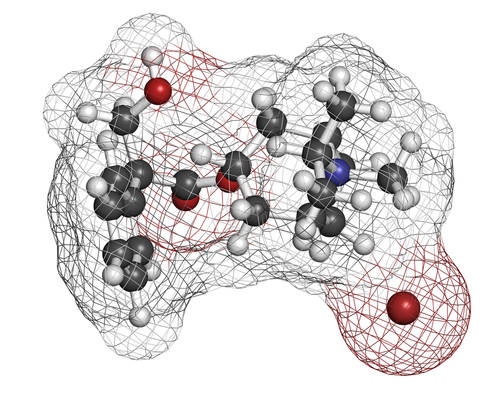 A new study, entitled “Combination Long-Acting β-Agonists and Inhaled Corticosteroids Compared With Long-Acting β-Agonists Alone in Older Adults with Chronic Obstructive Pulmonary Disease” was published in JAMA by Andrea S. Gershon and colleagues from the Department of Medicine, Sunnybrook Health Sciences Centre and Institute for Clinical Evaluative Sciences in Toronto, Ontario, Canada. In this study, the researchers show that combination therapy with newly prescribed Long-Acting β-Agonists (LABA) and inhaled corticosteroid (ICS) was associated with a significantly lower risk of death and COPD hospitalization in older individuals with COPD, with asthma and not treated with a long-acting anticholinergic therapy when compared with newly prescribed LABAs alone.
A new study, entitled “Combination Long-Acting β-Agonists and Inhaled Corticosteroids Compared With Long-Acting β-Agonists Alone in Older Adults with Chronic Obstructive Pulmonary Disease” was published in JAMA by Andrea S. Gershon and colleagues from the Department of Medicine, Sunnybrook Health Sciences Centre and Institute for Clinical Evaluative Sciences in Toronto, Ontario, Canada. In this study, the researchers show that combination therapy with newly prescribed Long-Acting β-Agonists (LABA) and inhaled corticosteroid (ICS) was associated with a significantly lower risk of death and COPD hospitalization in older individuals with COPD, with asthma and not treated with a long-acting anticholinergic therapy when compared with newly prescribed LABAs alone.
Chronic obstructive pulmonary disease (COPD) is used to designate a group of lung diseases like chronic bronchitis, emphysema and chronic obstructive airways disease. COPD is a common, preventable, and treatable respiratory condition, but is also a major cause of morbidity and mortality in the world. The first-line treatment of symptoms and airflow obstruction during the exacerbation period are short-acting inhaled β2 agonists (SABAs) and anticholinergic agents (short-acting muscarinic antagonists, SAMAs). Both types of drugs are bronchodilators but the former act on the beta2-adrenergic receptor resulting in dilatation of bronchial passages while the later act by blocking the interaction of neurotransmitter acetylcholine with its receptor therefore inhibiting the parasympathetic nerve impulses.
In this study, the researchers compared the long-term benefits of long-acting β-agonists (LABAs) and inhaled corticosteroids combined therapy with LABAs alone in a group of older individuals (66 years of age and older) with COPD and with other diseases, including asthma, by using data obtained from a longitudinal cohort study conducted in Ontario, Canada, between 2003 and 2001. This population was divided in two groups, 8,712 first time users of LABA-inhaled corticosteroid combination therapy and 3,160 first time users of LABAs alone that were followed up on average for 2.7 years and 2.5 years, respectively. During the study, the researchers analyzed the combination of death and COPD hospitalization outcomes within these two groups and concluded that there was a very small but significantly lower risk of death and COPD hospitalization outcomes among first time users of LABAs and ICSs when compared with first time users of LABAs alone. Although among COPD patients with asthma and patients that were not treated with inhaled long-acting anticholinergic therapy there was a significant difference in death and COPD hospitalizations outcome.
“Our finding of an association between LABAs and ICSs and outcomes helps clarify the management of patients with COPD and asthma, as many studies of COPD medications have excluded people with asthma and vice versa,” the authors write. “In addition, practice guidelines for COPD recommend that LABAs be considered first-line treatment while asthma guidelines warn against use of LABAs without ICSs. Our findings also offer insight into the optimal treatment of COPD patients without asthma—those who would not be considered especially corticosteroid responsive.” Moreover, the researchers stressed that these observations should be confirmed in randomized clinical trials.
In an editorial comment about this study, Peter M. A. Calverley, M.B.Ch.B., D.Sc., of the University of Liverpool, England wrote that, “Perhaps the most noteworthy feature of the new data reported by Gershon et al is the difference in the characteristics of the patients who use these treatments from those in whom therapy was validated in randomized clinical trials (RCTs). The outcomes of treatment in these ‘real-world’ patients were somewhat better than might have been expected from RCTs, but the patients were also much more diverse and often sicker. The study by Gershon et al shows that findings from appropriately conducted database analyses complement data from RCTs and should be considered when determining treatment algorithms.”

